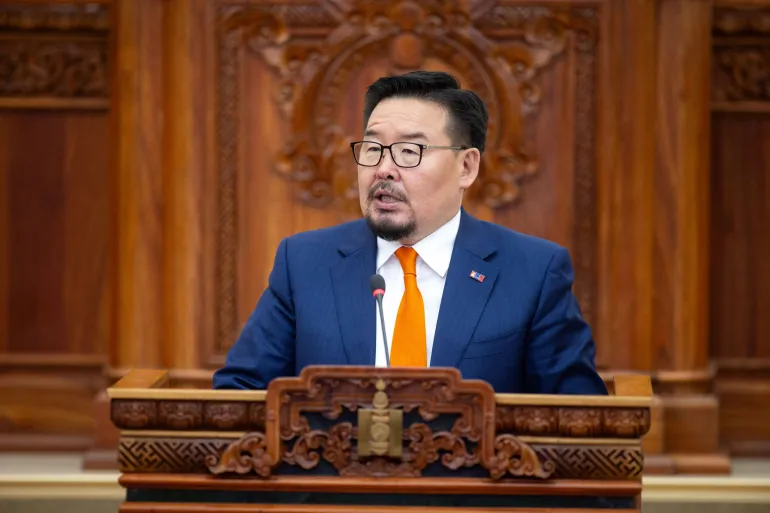Mongolia’s political landscape has entered another period of uncertainty after Prime Minister Gombojav Zandanshatarstepped down just four months into his term, following a decisive vote of no confidence in parliament.
The State Great Khural, Mongolia’s 126-seat legislature, voted on Friday to remove the prime minister, with 71 members supporting the motion and 40 opposing, according to the official parliamentary statement. The outcome followed weeks of growing tension within the ruling Mongolian People’s Party (MPP) and mounting criticism over the government’s handling of key appointments and policy changes.
More than 50 legislators submitted the motion earlier this month, accusing Zandanshatar of constitutional breaches and poor governance. At the center of the dispute was his unilateral appointment of a new Minister of Justice and Home Affairs, which lawmakers said bypassed parliamentary consultation and infringed upon the powers of both the president and the legislature.
In their motion, MPs claimed the move violated “the separation of powers and the principles of the rule of law.” Other concerns included Zandanshatar’s comments about an ongoing judicial investigation — alleged to have undermined the independence of the judiciary — and his decision to revise mineral export pricing rules, which critics argued created unfair competition.
Zandanshatar, a Russian-educated economist and former deputy head of a major commercial bank, took office in June following the resignation of former Prime Minister Luvsannamsrain Oyun-Erdene, who was ousted after mass protests over corruption and the extravagant spending of his family members.
The swift turnover of two prime ministers in less than half a year has raised concerns about the stability of Mongolia’s young democracy, as well as its attractiveness to foreign investors.
Oyun-Erdene had previously warned that continued political infighting could threaten the country’s parliamentary system. “If instability persists, the economic situation will deteriorate, and the parties’ inability to cooperate could put Mongolia’s democracy at risk,” he said earlier this year.
With the latest resignation, the MPP faces renewed pressure to maintain political cohesion and restore public confidence in a nation struggling with corruption scandals, economic slowdown, and a widening divide between citizens and political elites.

